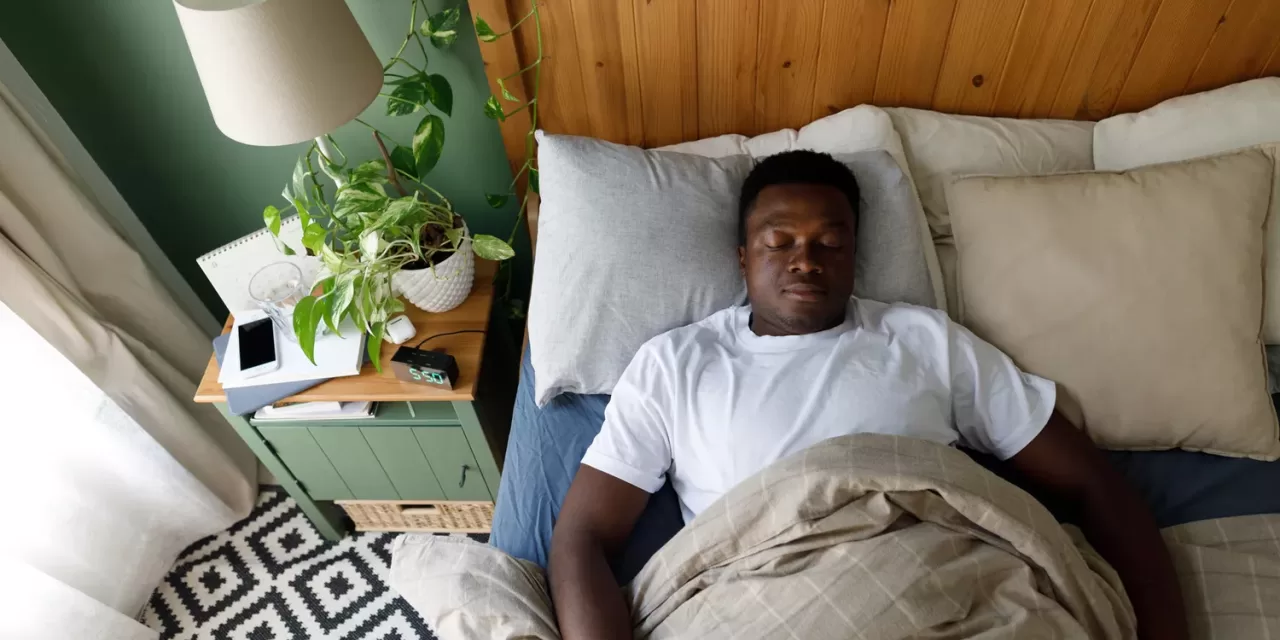A recent study presented at the 2024 Alzheimer’s Association International Conference has raised concerns about how our sleeping position might influence brain health. The research suggests that sleeping on your back—also known as the supine position—could be associated with an increased risk of neurodegenerative diseases such as Alzheimer’s and Parkinson’s.
While getting enough sleep is critical for overall well-being, this new study highlights the potential significance of how we sleep, not just how long we sleep.
Exploring the Connection Between Back Sleeping and Neurodegeneration
Daniel J. Levendowski, the study’s lead author and president of Advanced Brain Monitoring, a neuro-diagnostic device company, discussed how previous research first identified a link between back sleeping and brain degeneration in a 2015 animal study. More recently, Levendowski’s team investigated the issue in humans, examining whether time spent in the supine position during sleep could heighten the risk of conditions like Alzheimer’s disease and mild cognitive impairment (MCI).
For this latest study, researchers tracked the sleep patterns of around 300 participants using a device called the Sleep Profiler, which recorded how many hours per night they spent on their backs. The participants included a control group of healthy individuals and another group with conditions like MCI, Alzheimer’s disease, and Parkinson’s spectrum disorders (PSD). The results showed that those with neurodegenerative diseases tended to sleep on their backs for more than two hours a night, compared to the control group.
“Our research has established a strong association between supine sleep and neurodegeneration, but it’s yet to be proven whether supine sleep causes neurodegeneration,” Levendowski emphasized.
The Brain’s “Waste Management System” and Sleep Position
The potential link between sleeping positions and brain health may lie in the body’s glymphatic system—a crucial mechanism that clears out neurotoxins accumulated in the brain throughout the day. This system functions best during sleep, but researchers believe that the supine position may hinder its efficiency. Sleeping on the back may reduce the brain’s ability to flush out harmful proteins, such as beta-amyloid, which is closely associated with Alzheimer’s disease.
Studies conducted on animals have supported this idea, showing that sleeping on the side improves glymphatic clearance and helps maintain healthy brain function. Additionally, people who sleep on their backs are at a higher risk of sleep apnea, a condition that disrupts sleep and can worsen neurotoxin buildup.
Limitations and Skepticism
While the findings are compelling, experts caution against drawing firm conclusions. Dr. Diego R. Torres-Russotto, chair of neurology at Baptist Health Miami Neuroscience Institute, pointed out several limitations of the study. For instance, the control group was not well matched to the group with neurodegenerative diseases, and the study has yet to undergo the rigorous process of peer review. Additionally, because the research was funded by a company that sells sleep diagnostic devices, there could be potential bias in the results.
“These and other limitations could mean that the differences seen between the sleeping positions in this study could be due to the two populations not being statistically comparable,” Torres-Russotto explained.
How to Modify Your Sleeping Position
For those concerned about their sleep position, there are several strategies to help avoid back sleeping. One method is to use pillows on either side of the body, which encourages side sleeping. Another technique involves placing a tennis ball in the back of your pajama top—a trick designed to create discomfort and prevent rolling onto your back during the night.
Although more research is needed to confirm the link between back sleeping and neurodegenerative disease, this study provides new insights into how sleep habits may influence brain health. With the rise in neurodegenerative disorders, even modifiable risk factors like sleep position are worth considering.
While it’s too early to recommend any definitive changes to your sleep routine, paying attention to how you sleep may be one small step toward protecting your brain as you age.












